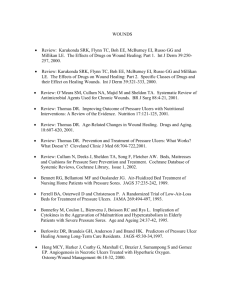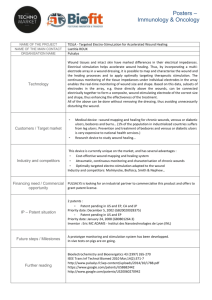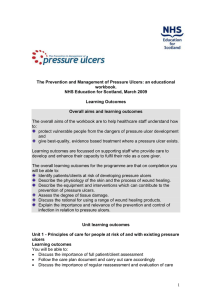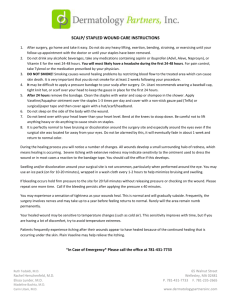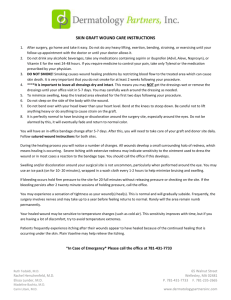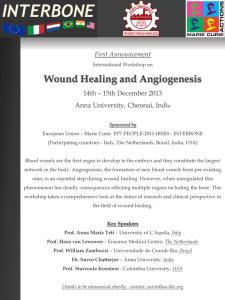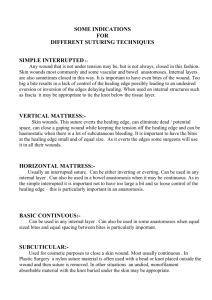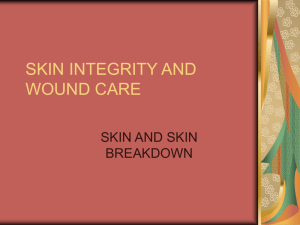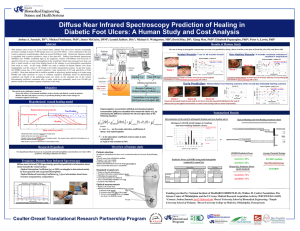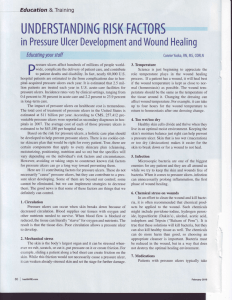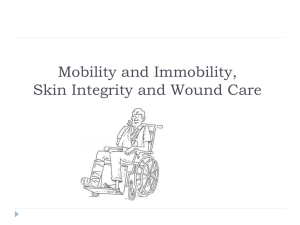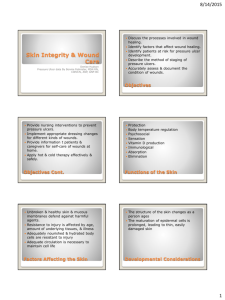Skin Integrity and Medications
advertisement
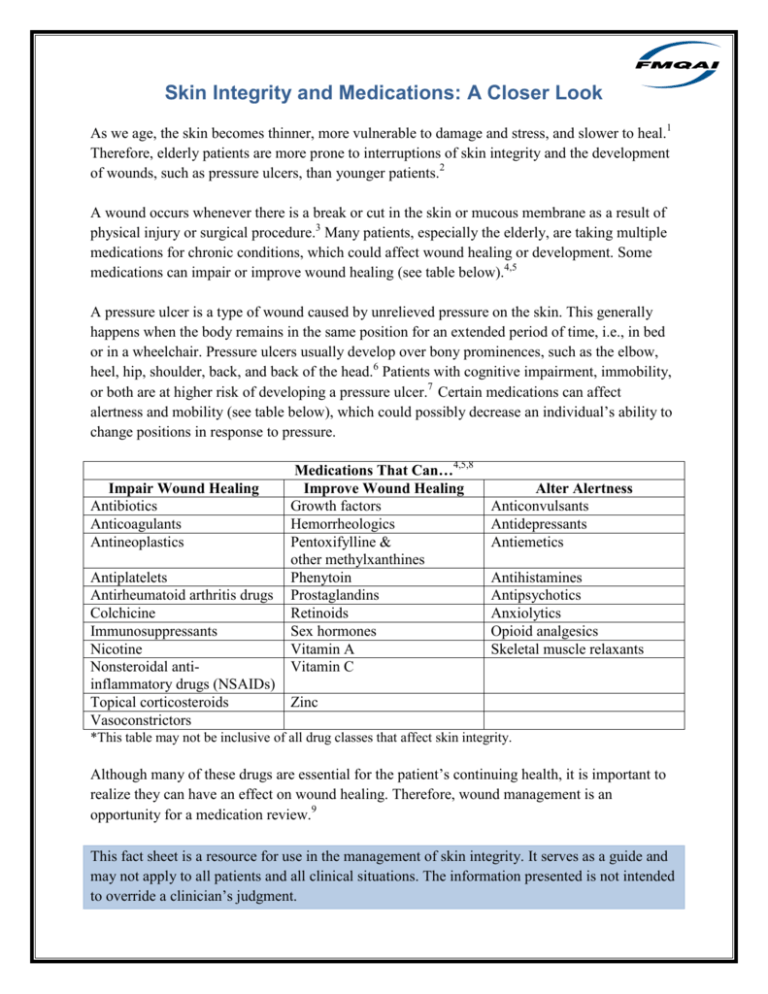
Skin Integrity and Medications: A Closer Look As we age, the skin becomes thinner, more vulnerable to damage and stress, and slower to heal.1 Therefore, elderly patients are more prone to interruptions of skin integrity and the development of wounds, such as pressure ulcers, than younger patients.2 A wound occurs whenever there is a break or cut in the skin or mucous membrane as a result of physical injury or surgical procedure.3 Many patients, especially the elderly, are taking multiple medications for chronic conditions, which could affect wound healing or development. Some medications can impair or improve wound healing (see table below).4,5 A pressure ulcer is a type of wound caused by unrelieved pressure on the skin. This generally happens when the body remains in the same position for an extended period of time, i.e., in bed or in a wheelchair. Pressure ulcers usually develop over bony prominences, such as the elbow, heel, hip, shoulder, back, and back of the head.6 Patients with cognitive impairment, immobility, or both are at higher risk of developing a pressure ulcer.7 Certain medications can affect alertness and mobility (see table below), which could possibly decrease an individual’s ability to change positions in response to pressure. Impair Wound Healing Antibiotics Anticoagulants Antineoplastics Antiplatelets Antirheumatoid arthritis drugs Colchicine Immunosuppressants Nicotine Nonsteroidal antiinflammatory drugs (NSAIDs) Topical corticosteroids Vasoconstrictors Medications That Can…4,5,8 Improve Wound Healing Growth factors Hemorrheologics Pentoxifylline & other methylxanthines Phenytoin Prostaglandins Retinoids Sex hormones Vitamin A Vitamin C Alter Alertness Anticonvulsants Antidepressants Antiemetics Antihistamines Antipsychotics Anxiolytics Opioid analgesics Skeletal muscle relaxants Zinc *This table may not be inclusive of all drug classes that affect skin integrity. Although many of these drugs are essential for the patient’s continuing health, it is important to realize they can have an effect on wound healing. Therefore, wound management is an opportunity for a medication review.9 This fact sheet is a resource for use in the management of skin integrity. It serves as a guide and may not apply to all patients and all clinical situations. The information presented is not intended to override a clinician’s judgment. References 1. Eastern Health. Skin integrity booklet: A guide to the principles of prevention and management. June 2008. Available at: www.health.vic.gov.au/older/toolkit/09SkinIntegrity/docs/Skin%20Integrity%20 Its%20maintenance%20and%20support%20Attch01.pdf. Accessed February 15, 2011. 2. Zulkowski K. Protecting your patient’s aging skin. Nursing. Jan 2003;33(1):84. 3. New England Dermatological Society Incorporated. Wounds. Last updated November 27, 2010. Available at: www.dermnetnz.org/reactions/wounds.html. Accessed February 15, 2011. 4. Sussman G. The impact of medicines on wound healing. Australian Pharmacist. 2007;26(11):874878. 5. Broderick N. Understanding chronic wound healing. The Nurse Practitioner. October 2009;34(10):16-22. 6. Park-Lee E, Caffrey C. Pressure Ulcers Among Nursing Home Residents: United States, 2004. Hyattsville, MD: National Center for Health Statistics; 2009. NCHS Data Brief, No 14. 7. Porter RS, Kaplan JL, online eds. The Merck Manuals: Online Medical Library. Pressure ulcers/etiology. Last updated October 2008. Available at: http://www.merckmanuals.com/professional/sec10/ch126/ch126a.html. Accessed February 23, 2011. 8. Micromedex® Healthcare Series [Internet database; available by subscription]. Greenwood Village, Colo: Thomson Healthcare. Updated periodically. Accessed February 14, 2011. 9. MacLellan DG. Chronic wound management. Australian Prescriber. 2000;23(1):6-9. March 2011 Sophia Cherry, RPh, MPH Project Coordinator, Drug Safety, FMQAI Mandy Zipf, Wayne Chou, Saleh Rashid, PharmD Candidates College of Pharmacy, University of Florida, Gainesville, Florida This material was prepared by FMQAI, the Medicare Quality Improvement Organization for Florida, under contract with the Centers for Medicare & Medicaid Services (CMS), an agency of the U.S. Department of Health and Human Services. The contents presented do not necessarily reflect CMS policy. FL-9SOW-2011F62DT-3-12187
